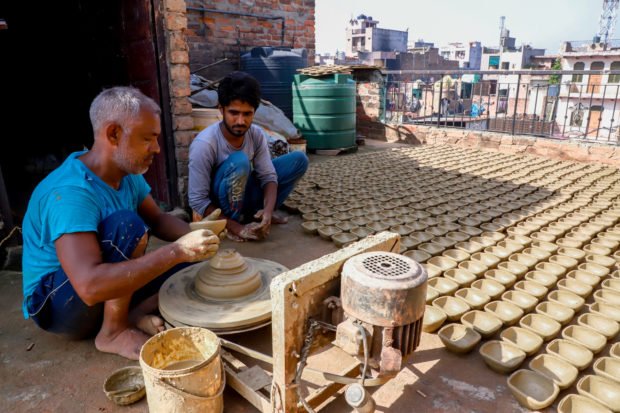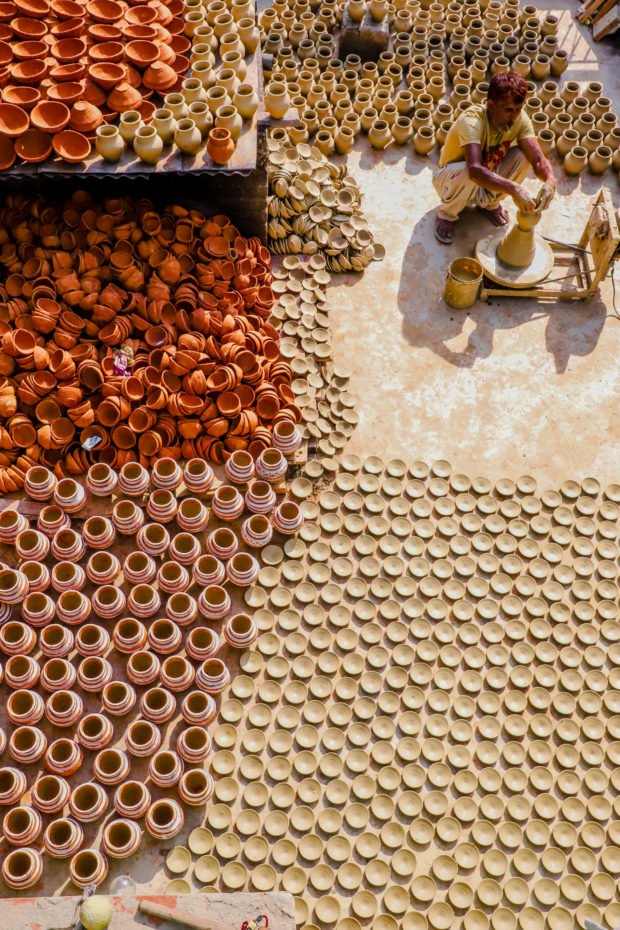Tucked in the by-lanes of Uttam Nagar is the famous colony of potters known as Kumhargram. It is like a mini-city which comprises the artisans’ homes, their workshops, and their sale outlets, all in one place. The streets are dotted with numerous shops selling diyas (earthen laps) of various shapes and kinds, pots, vases, idols, and other decorative items. All of these items are made from mud that is brought from Haryana and red soil brought from Rajasthan.

These potters have been here for several generations. Harkishan Prajapati, a National Award-winning potter, came here with his family in the 1970s. Like Prajpati, the beautiful work of many other potters of Kumhargram has been recognised on a national level.

Diwali is the prime season for sales as people throng Kumhargram for buying diyas and artefacts at dirt-cheap prices. What is interesting to know is that thousands of these humble diyas are exported to countries like Canada and Singapore for the sizeable Indian population there.
There are over 400 potter families that live and work relentlessly in Kumhargram. One can only imagine the number of diyas that this place produces. So are all these diyas (and other artefacts) sold to buyers like us? No. Most of the items are purchased by the wholesalers at very less price and later sold in the markets at a huge margin. The profit, sadly, never reaches these artisans.

If you are planning to update your crockery set or are looking for gifting options this Diwali, then Hauz Rani is THE place to visit. Plates, bowls, spoon-holders, mugs, salt cellars—you name it and they have it. You can also get your hands on some interesting pots for your plants. What’s more? The shopkeepers also take orders for customised products. And all of this at throwaway prices.
So, this festive season, let us give the Chinese fairy lights a miss, and lighten and brighten our homes with these pocket-friendly made-in-India diyas and decorations. They are eco-friendly and they help in promoting indigenous artistry and craftsmanship. Moreover, by directly buying these items from the artisans (and doing away with the middlemen or the wholesalers), the potters will be able to earn their fair profit and it will be a true Diwali for them.




